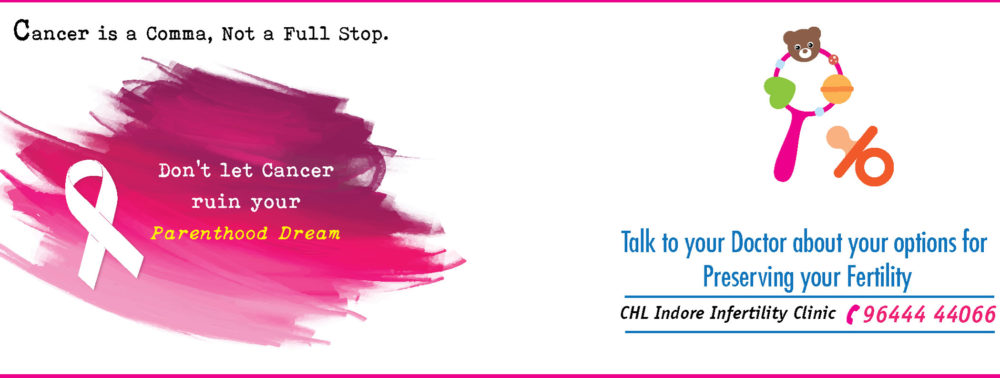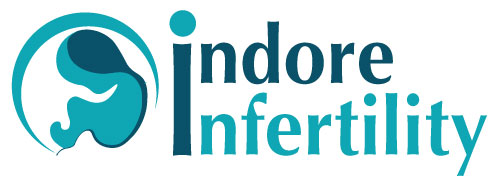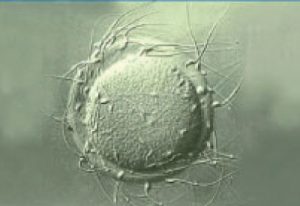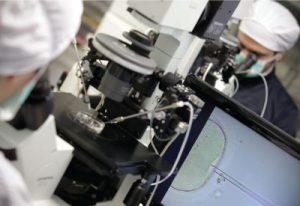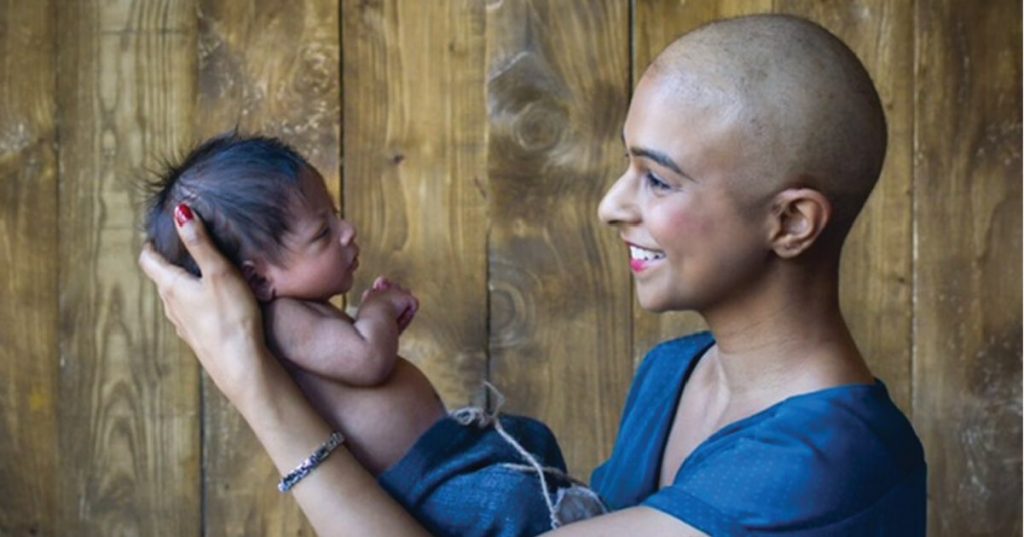
Cancer diagnosis may not immediately lead to thought about fertility preservation. But, if you’re a women of childbearing age or a man who is concerned about his future ability to become a father, it is important to understand that the treatment that help fight cancer may also affect your ability to have children.
Fortunately, there are more option to preserve your fertility than ever before. Most of these options need you to act before you commence your cancer treatment
Which Cancer patients should be looking into Fertility Preservation?
Anyone who wishes to bear children of their own i.e unmarried woman, married woman with no or one child. Married or unmarried Men wanting to have children of their own. Spouses of patients who wish to have children in future.
Will my treatment have any short or long term side effects on my reproductive system?
Different cancer treatment affect the body in different ways. Chemotherapy, radiation and surgery can all affect your reproductive system. In general , the higher the dose and longer the treatment , the higher can chance for reproductive problem. Ask your doctor to help determine the fertility risks associated with your individual treatment regimen.
What are my fertility preservation options before treatment?
Men
Sperm Freezing: Sperm may be frozen and ‘banked’ for future use. It is strongly recommended that sperm be collected prior to initiation of treatment because the quality of the sample and sperm DNA integrity may be compromised even after a single treatment session. Even if your sperm count is low or you only have time to make one deposit, Sperm Banking may still be worthwhile. Once sperm is frozen , there is no set time limit as to how long it can remain frozen until it is used.
Testicular Tissue Freezing: It is an option for some men who can not bank sperm because of the inability to ejaculate. When sperm are present in the testicle but not in the semen, it is relatively straight-forward outpatient surgical procedure to remove sperm-bearing tissue from the testicle and freeze it for future use.
Women
Egg Freezing: Egg freezing is now a very good option for unmarried women. At Indore Infertility Clinic, we have an excellent Egg Vitrification Program and our pregnancy rates after egg freezing are comparable to fresh egg. The process requires hormonal stimulation to retrieve your egg and takes two to six weeks.
Embryo Freezing: Embryo freezing is a proven, successful way to try to preserve your fertility. It is a good option to consider if you are married, have a committed partner or are willing to use donor sperm. The process requires hormonal stimulation to retrieve your eggs.
Ovarian Tissue Freezing: Ovarian Tissue Freezing may be a good option if you do not have a lot of time before treatment or if you cannot have the hormonal stimulation needed for egg retrieval for either Egg or Embryo freezing. This approach involves the surgical removal and freezing of ovarian tissue.
What are my fertility preservation options after treatment?
Men
It is ideal to bank sperms before treatment. But, if you have not been able to that, and if you are still producing sperms after treatment, you should talk to your doctor about how long you should wait for sperm banking after radiation or chemotherapy.
Women
Egg Freezing, Embryo Freezing and ovarian Tissue Freezing are usually thought of as pre-treatment options. They can also be done after cancer treatment. If you are fertile, But worried that you might go into early menopause before you are ready to start a family, you may want to preserve your fertility after treatment.
After treatment, how will I know if I am infertile or fertile?
Men
Semen analysis is a simple test that can be performed after you finish treatment.
Women
If you are having periods without tha aid of hormonal supplement like birth contral pills, you may still be fertile. Simple hormone tests and ultrasound can be used to check your fertility.
What are my parenthood options after cancer?
Men
Natural conception can occur if your semen analysis is in the normal range. If you have banked sperm, it can be used via In Vitro Fertilizaton (IVF) to impregnate your wife or partner.
Women
Natural conception may be possible if you remain fertile after treatment. If you have undergone Egg, Embryo or Ovarian Tissue Freezing, you can use this genetic material and get pregnant with the help of IVF. Many cancer survivors have children after treatment.
Can I become a mother if I am not fit to cary a pregnancy after treatment?
If you have banked your eggs, embryos or ovarian tissue before treatment, then, you can still become a mother with the help of Surrogacy, where another women carries your baby for you.
How safe is it to become pregnant for a women after surviving cancer?
Currently available studies suggest that pregnancy after cancer does not reduce chances of the patient’s survival.It does not trigger cancer recurrence, even after breast cancer. Radiation to the uterus can increase the risk of miscarriage or premature births.
If I am producing sperms after cancer treatment, is it safe for me to father a child with natural conception?
Sperm cells exposed to chemotherapy or radiation may suffer genetic damage. This damage appears to be repaired one to two years after treatment
Is there any risk of birth defects in children born to cancer survivors?
Rates of birth defects in the general population are 2% to 3%. Rates of birth defects in children born after one parents cancer treatment appears similar. No unusual cancer risk has been identified in the offspring of cancer survivors (except in families identified with true genetic cancer syndrome, for example, Inheritd Retinolastome).
